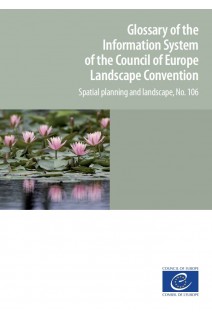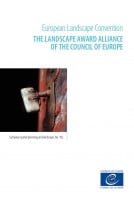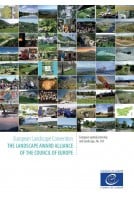



The Council of Landscape Convention applies to the whole territory of the parties and covers natural, rural, urban and periurban areas. It concerns landscapes that can be considered as outstanding, as well as everyday landscapes and degraded landscapes. The parties to the convention undertake to promote the protection, management and planning of these landscapes and to develop international co-operation in order to enhance the effectiveness of measures taken under the convention.
Recommendation CM/Rec(2013)4 of the Committee of Ministers to member States on the European Landscape Convention Information System of the Council of Europe and its glossary recommend that the parties to the convention use the Information System with its glossary, in the framework of their co-operation.
INTRODUCTORY NOTE
SUMMARY
1. AREA/TERRITORY
2. AWARENESS RAISING, PARTICIPATION, CONSULTATION
3. COMPETENT AUTHORITIES
4. CO-OPERATION BETWEEN THE PARTIES
5. DIRECT OR INDIRECT EFFECT ON LANDSCAPE
6. DRIVING FORCES, PRESSURES, CHANGES
7. HERITAGE
8. IDENTIFICATION OF LANDSCAPES
9. INTEGRATION OF LANDSCAPE INTO SECTORAL POLICIES
10. INTERESTED PARTIES
11. LANDSCAPE
12. LANDSCAPE ASSESSMENT
13. LANDSCAPE FEATURES/CHARACTERISTICS, CHARACTERISTIC FEATURES OF A LANDSCAPE
14. LANDSCAPE POLICY
15. LANDSCAPE QUALITY OBJECTIVES
16. TAKING NOTE OF LANDSCAPE CHANGES
17. NATURAL AREAS, NATURAL FACTORS
18. OUTSTANDING LANDSCAPE, EVERYDAY LANDSCAPE, DEGRADED LANDSCAPE
19. PERI-URBAN AREAS
20. PUBLIC/POPULATION CONCERNED
21. ROLE OF LANDSCAPE
22. RURAL AREAS
23. SUBSIDIARITY PRINCIPLE
24. SURROUNDINGS
25. SUSTAINABLE LANDSCAPE PROTECTION, MANAGEMENT AND PLANNING
26. URBAN ENVIRONMENTS, URBAN AREAS
27. VALUE OF LANDSCAPES
REFERENCES



The Council of Landscape Convention applies to the whole territory of the parties and covers natural, rural, urban and periurban areas. It concerns landscapes that can be considered as outstanding, as well as everyday landscapes and degraded landscapes. The parties to the convention undertake to promote the protection, management and planning of these landscapes and to develop international co-operation in order to enhance the effectiveness of measures taken under the convention.
Recommendation CM/Rec(2013)4 of the Committee of Ministers to member States on the European Landscape Convention Information System of the Council of Europe and its glossary recommend that the parties to the convention use the Information System with its glossary, in the framework of their co-operation.
